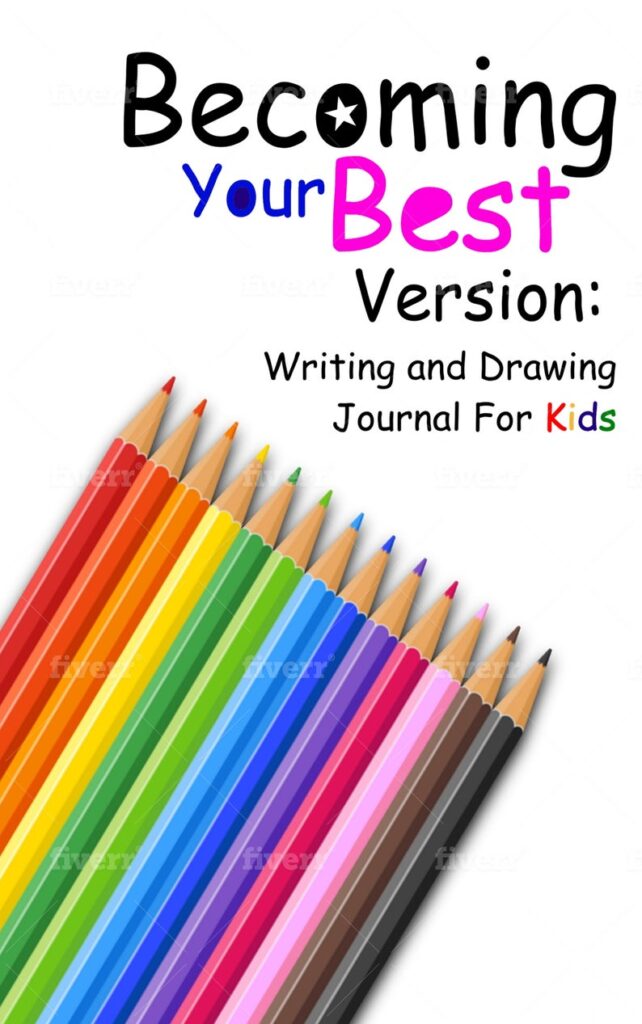Does ADHD Impact Your Child At School?
If your child is experiencing mental health challenges that are impacting their behavior and mood, reach out today to start counseling. Santos Counseling PLLC specializes in working with kids, tweens, and teens who are experiencing ADHD challenges. At Santos Counseling, we notice that kids with ADHD at school often struggle with maintaining focus on tasks, taking a moment to pause before speaking, organization, completing tasks, managing their time, and with restlessness.

Common Symptoms of ADHD:
- Struggling to concentrate on a specific task.
- Struggling to wait for their turn. Such as when in line or during a game.
- Lots of movement. Such as being fidgety or having a hard time remaining seated.
- Struggling to maintain focus.
- Taking action without thinking about the consequences or situation first.
- Excessive talking.
How to help your child with ADHD:
1. Time management
As an adult and a parent, you have some sort of schedule that you follow. Maybe you follow an 8am to 5pm job schedule which you create time management around. Creating a schedule for your child in no way inhibits their ability to function or labels that they have a problem. Think about it rationally. You as an adult, have a schedule and utilize time management to make your life function in a healthy manner.
Your child’s schedule can include everything from waking up in the morning to going to bed. Some things in the schedule can be a rough estimate while others such as school hours are more fixed.
The most important factor in it is that you and your child stick to it – consistently!
2. Prioritization
Now that you have a schedule create a system of prioritization and importance. Sit down with your child and identify which areas of their schedule are more important and need a more defined approach in structure. For instance, if your child requires a quiet room for homework – make it your responsibility to create a distraction-free space for your child to do their homework at. In addition, on the schedule add the space/location and time. This way your child will connect the dots.
3. Creativity
Your child may have a unique approach to time management, prioritization, and scheduling in order to support hyperactivity and impulsive.
Communicate with your child to identify what unique approaches would support them educationally. Examples include:
- Would studying at a public library be more proficient and effective than at home?
- Are flashcards on a cell phone/tablet more effective than hard copy?
- Are audiobooks better compared to a physical books?
Again, you really want to invest time and energy into your child and in creating awareness.
4. Commitment
Once you have a plan, stick to it. Make sure that you are following up with your child and equally invested in their changes. The truth is that “no one likes to be in it alone”. Walk with your child side by side in their journey to understand and conquer their ADD, ADHD, hyperactivity or impulsive.
5. Self-care
When someone is going through change, there often comes a phase of exhaustion and frustration due to the change. Provide your child with self-care in the manner of rewards. Activities such as playing video games, Netflix, or socializing with friends are great ways for your child to “reset” and “recharge their batteries”.
With self-care, it is important to create commitment and time management. Provide your child with their activity under a specific time frame otherwise like many of us, they will take advantage of it.
Lastly, your child is often exhausted and stressed with the entire educational struggle due to overcoming their hyperactivity or impulsive behaviors. Self-care directly creates balance.
A recap – at this point, you have some awesome strategies to support your child educationally with barriers caused by ADHD, ADD, impulsive, and hyperactive.
Be patient and willing to invest time and energy into your child.
As you walk away from this reading, take with your strategies to navigate homeschooling your ADHD child during COVID. Take with your patience and openness to learn. As parents, we can give ourselves the gift to learn from our kids. We can give ourselves the gift to give our child the same patience and kindness that we ourselves desire.
One Dads Perspective In Homeschooling His ADHD Daughter During COVID
As a parent, watching my kids grow and learn during COVID. I can tell you that I am amazed and proud to see how they are navigating such difficult waters. Parenting and homeschooling a child with ADHD is a ball game of its own that requires a different set of strategies to make things to work.
Below is one such strategy that I’ve implemented. I like to call it, school on wheels.
I set up her bicycle with the training wheels. Below each training wheel is a shoe. The shoes allow the back wheel not to touch the floor. Sitting on top was my hyperactive and beautifully intelligent daughter Nola. Her legs moving faster than the speed of light. Her bicycle was perfectly positioned in front of the kitchen table where her iPad sat presenting the recorded lecture for her class.
At this point, you probably get why I call it, school on wheels.
Homeschooling a child with ADHD during COVID has its challenges. I see this as a parent and witness it on a professional level as a counselor at Santos Counseling PLLC. COVID has been present for around 6 months, in that time I have developed creative ways to support my ADHD child with homeschooling.
Below are strategies to practice when homeschooling your ADHD child:
Create Healthy Expectations.
Education is one avenue of growth, not the sole avenue. As such, take time to create realistic expectations for you and your child. As an example, yesterday my daughter got stuck in her art activity and became restless. Which by the way is a common symptom of ADHD. During this time, I noticed that she moved around in her chair almost as if she was dancing. In this moment, I could have done two things. One, pushed her to stop moving and focus. Or acknowledge the symptoms of ADHD and take a different approach.
The expectation in our home is to learn and grow. Learning and growing take place at a better level when we enjoy the process. As such, the expectation that I followed in that situation was to give her a break. During the breaks, she stands up and moves around. Or she will run outside and play on the swing.
Create A Schedule.
A common symptom of ADHD is associated to difficulty in paying attention or feeling overwhelmed when taking on too many things. In your home, find a way to segment the day for your child. This helps to improve concentration and your child’s ability to enjoy the task. At one point my daughter shouted to me, I NEED A BREAK. My immediate thought was consequence time. Seconds later, my rational thoughts kicked in like Spiderman’s spider senses. This was my wake-up call as a parent to hear my daughter. She needed a break with her schoolwork.
As an example, at home, her school day has breaks incorporated into it as a way to help with attention and focus. What I noticed is that she is able to pay better attention now.
Utilize Purposeful Consequences.
Parenting is hands down no walk in the park. Homeschooling during COVID has required me and my wife to be tested as a couple and parents. As a parent to a child with ADHD, I found myself giving way too many consequences. Maybe some parents reading this can sympathize. In full transparency, the early days of COVID, homeschooling ended with at least 5 consequences or remarks related to behavior.
I found myself saying things like sit down, stop bouncing around, or please pay attention. Purposeful consequences take place when a parent reduces punishment while rewarding positive behaviors. This is specifically helpful when parenting ADHD due to the symptoms of ADHD often being connected to the issue at hand.
As an example, when my daughter is doing an awesome job paying attention in class. I STOP and give her a KINDNESS. I reward her positive behavior by giving her words of kindness or a small material gift. What takes place is that she is able to build a relationship between positive behaviors and rewards. This right away increases the behavior from continuing to take place.
Create Time For Connecting.
My child’s ADHD may be different than yours. Yet, there is this beautiful way to build a bridge that allows parents to connect with their children during the journey of homeschooling amidst COVID.
An activity to practice is having a space to communicate. My daughter and I like to play with toys or build forts out of covers and pillows. During this time, we talk and build a connection. I ask her questions about what it’s like having me or mom as her home teacher. We talk about what she enjoys about having class on the iPad and what’s annoying. This has proven to be a great space to talk about ADHD.
Practice Vulnerability.
From one parent to another life can be a roller coaster. Sometimes I’ll sit back and watch my daughter navigate her iPad during class. I think to myself, man this is so much to expect from her. To wake up and have class on a tablet with no students around her. To somehow find motivation and interest in the recorded sessions and live sessions.
With this being said, I’ve found myself being vulnerable with my daughter as a way to help her navigate school. Vulnerability means that I share my experiences and frustrations with my daughter in order to help her acknowledge that we are both navigating a journey of life.
As an example, not too long ago. I found her frustrated with her math homework. She just completed a recorded lecture. She seemed stuck and frustrated. In that moment, I sat with her and listened. We put away her work. I shared with her a difficult day I had prior in a way appropriate to a child. Her eyes lite up and this sparked a moment of connection and vulnerability. As we continue speaking, she herself returned to the schoolwork.
I find that when we as parents are vulnerable, it helps our kids see and hear us as parents while they themselves being seen and heard.
Cold beers.
I like cold beers and if you don’t that’s okay. The focus here is self-care. When it comes to self-care, I like to exercise, take the canoe out, or sit on the back deck and enjoy a good quality IPA with my wife. What do you do for self-care? Homeschooling your child during COVID requires that as parents we give ourselves the gift of space to breathe and relax. We take time to step away from life to reset and gather our thoughts and feelings. From one parent to all those reading, I want to encourage you to religiously set time to give yourself self-care. You’ll appreciate this. Your kids will appreciate this.
Start Getting Your Child Comfortable With Talking About Their Feelings:
How To Get Your Child Talking About Feelings!
The perfect therapy journal for your child to get started with. Created by a Licensed Counselor and input from all of the kids he has worked with.
Here is how it works:
For 30 days, your child will have a prompt to focus on. The prompts in the journal are writing or drawing assignments aimed to be FUN and INTERACTIVE in nature.
Prompts are great because they are therapeutic and directly help your child focus on emotional growth. At the bottom of each page, your child has a homework assignment. The homework assignments range from practicing affirmations to supportive acts of kindness.
The entire journal was created with one goal in mind:
To get your child to feel comfortable and confident with their feelings. A strong mindset equates to a successful future.
How To Talk So Kids Listen and Listen So Kids Will Talk
A great book for parents struggling to connect with their kids or to communicate lessons that create connection and understanding between a parent and child. I continue to recommend this book over and over due to what my parents tell me.
How To Talk So Kids Listen and Listen So Kids Will Talk, helps parents find the missing pieces. Much of what is discussed in the book, is taken from counseling sessions. CLICK HERE to check it out.
Supporting you in your journey of healing, recovering, and moving forward in life is our mission. The resources are hand-selected to ensure that you are provided with the very best tools to move you forward in your journey. Please note in full disclosure that these are affiliate links, meaning that a commission or incentive with links that you use. We truly appreciate your willingness and kindness in trusting our counseling practice.





